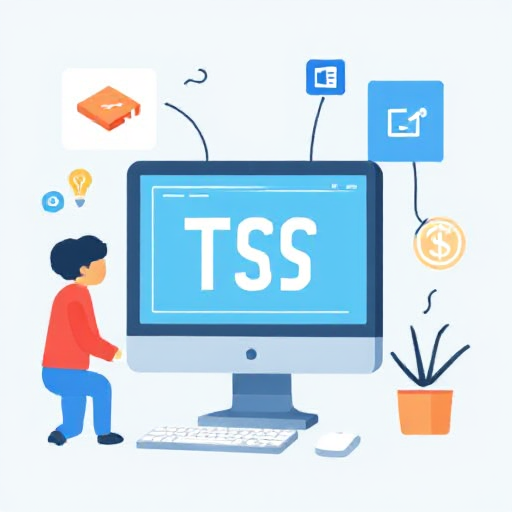
In today’s fast-paced, technology-driven world, acquiring tech skills is becoming increasingly essential. Whether you’re looking to kickstart a new career, enhance your existing job skills, or simply explore a new interest, beginner-friendly tech courses can provide an excellent foundation. This article highlights some of the best beginner-friendly tech courses, their benefits, and tips for choosing the right one for your needs.
Why Learn Tech Skills?
- High Demand for Tech Professionals: The tech industry offers a vast array of job opportunities, from software development and data analysis to cybersecurity and digital marketing.
- Versatility: Tech skills are valuable in virtually every industry, making them a powerful asset for career versatility.
- Personal Growth: Learning tech skills can boost problem-solving abilities, creativity, and adaptability.
- Remote Work Opportunities: Many tech roles allow for flexible work arrangements, including remote work.
Criteria for a Beginner-Friendly Tech Course
Before diving into specific recommendations, consider the following criteria when evaluating tech courses:
- Accessibility: Is the course designed for beginners with no prior experience?
- Clarity: Does it explain concepts in simple, easy-to-understand terms?
- Support: Are there opportunities for interaction, such as discussion forums, live sessions, or mentorship?
- Practical Application: Does it include hands-on projects to reinforce learning?
- Affordability: Does the cost align with your budget?
Top Beginner-Friendly Tech Courses
Here are some of the most popular and effective courses for beginners:
1. Introduction to Programming
- Recommended Course: CS50’s Introduction to Computer Science by Harvard (Available on edX)
- Why It’s Great: This course provides a comprehensive introduction to computer science and programming, covering fundamental concepts in an engaging way. It’s perfect for those looking to explore coding as a career or hobby.
- Skills Covered: Algorithms, data structures, programming in C, Python, and web development basics.
2. Web Development Basics
- Recommended Course: The Web Developer Bootcamp 2023 by Colt Steele (Available on Udemy)
- Why It’s Great: Designed for complete beginners, this course introduces HTML, CSS, JavaScript, and basic web development frameworks.
- Skills Covered: Building responsive websites, understanding the DOM, and basic backend integration.
3. Data Science and Analytics
- Recommended Course: Data Analysis with Python by freeCodeCamp
- Why It’s Great: This free course provides a gentle introduction to data analysis and visualization using Python, one of the most beginner-friendly programming languages.
- Skills Covered: Data wrangling, visualization techniques, and libraries like pandas and matplotlib.
4. Cybersecurity Basics
- Recommended Course: Introduction to Cybersecurity by Cisco Networking Academy
- Why It’s Great: With cyber threats on the rise, this course equips beginners with foundational knowledge about cybersecurity principles and practices.
- Skills Covered: Network security, risk management, and ethical hacking basics.
5. Digital Marketing
- Recommended Course: Fundamentals of Digital Marketing by Google Digital Garage
- Why It’s Great: Perfect for those interested in marketing, this free course covers the essentials of SEO, SEM, social media, and analytics.
- Skills Covered: Creating digital marketing campaigns, leveraging analytics tools, and optimizing online presence.
6. Cloud Computing Basics
- Recommended Course: AWS Cloud Practitioner Essentials by Amazon Web Services
- Why It’s Great: Cloud computing is at the core of modern IT infrastructure, and this beginner-friendly course offers an excellent introduction.
- Skills Covered: Cloud concepts, AWS services, and cloud security basics.
Tips for Choosing the Right Course
- Identify Your Goals: Determine whether you’re learning for career advancement, personal interest, or a specific project.
- Research the Course Provider: Ensure the provider has a good reputation and positive reviews.
- Check the Curriculum: Review the syllabus to confirm it aligns with your interests and goals.
- Consider Learning Style: Choose a format that suits your preferences, whether it’s self-paced, instructor-led, or project-based.
- Utilize Free Resources: Start with free courses or trial versions before committing to paid options.
The journey to acquiring tech skills begins with the right course. By choosing a beginner-friendly option that aligns with your goals and interests, you can lay a strong foundation for future learning and professional growth. Remember, persistence and practice are key—so dive in, experiment, and enjoy the process of learning something new.
Whether you’re coding your first program, building a simple website, or analyzing a dataset, each step brings you closer to mastering valuable tech skills. Explore these courses, and take the first step toward a rewarding and exciting journey in technology!






